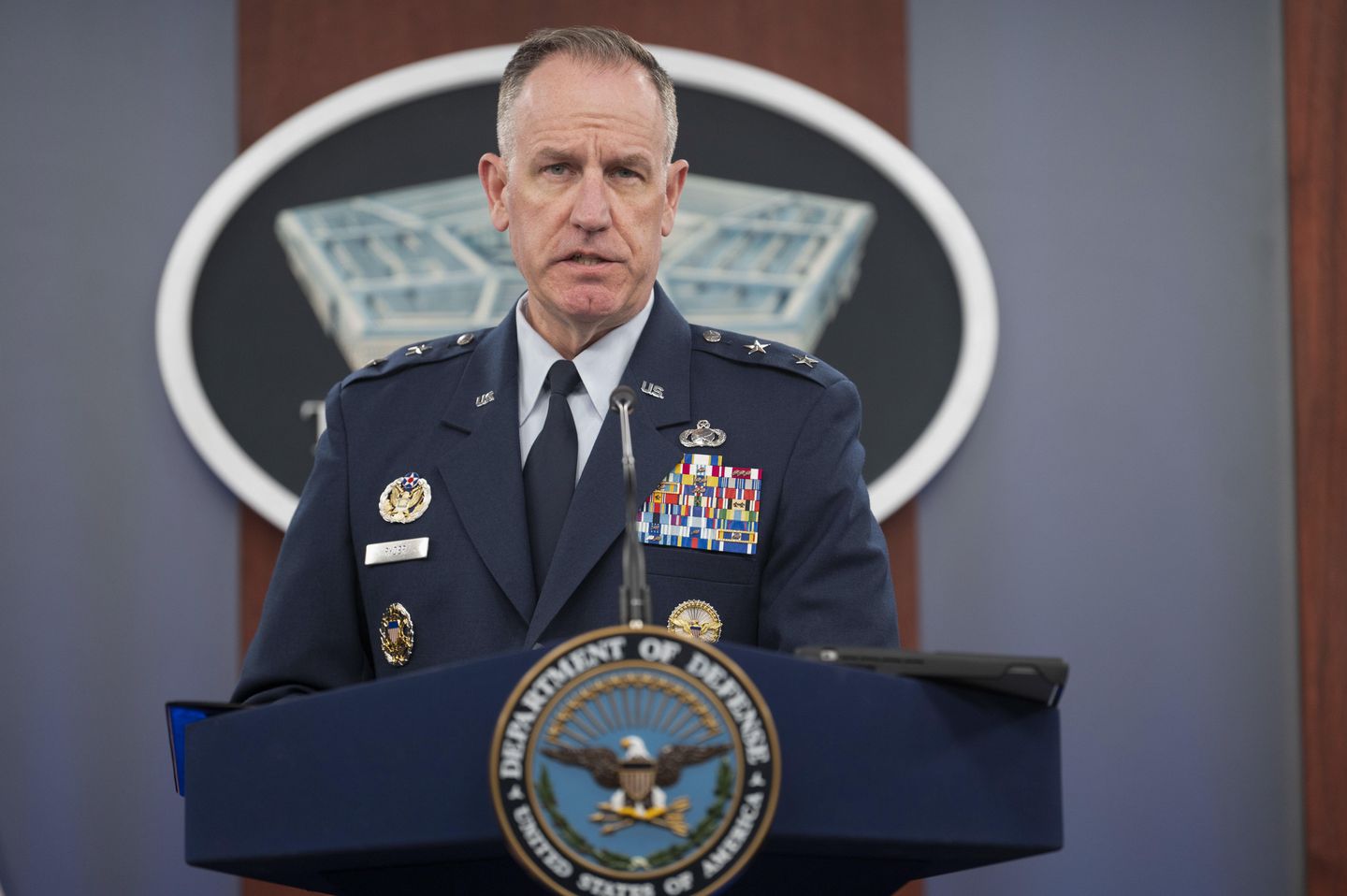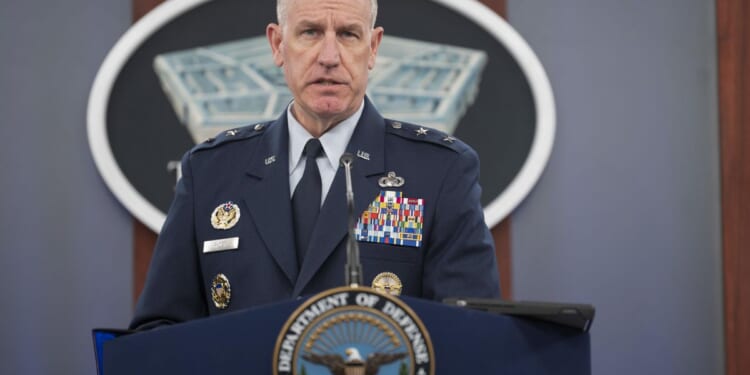
Defense Department officials on Thursday said no final decision has been made about a large shipment to Israel of 2,000 and 500-pound bombs that President Biden put on hold over concerns they could be used in a ground operation inside the densely populated city of Rafah in the southern Gaza Strip that Washington opposes.
The U.S. has been supplying Israel with weapons and ammunition regularly since October 7, when Hamas militants launched a rampage into southern Israel that killed more than 1,200 people and resulted in hundreds of others being taken hostage. The White House has made no secret of its opposition to an Israeli move into Rafah over fears of mass civilian casualties, and on Tuesday night confirmed reports that offensive weapons would be off the table.
“We’re continuing to discuss with Israeli officials their plans as it relates to Rafah and addressing the Hamas threat,” Maj. Gen. Pat Ryder, a Pentagon spokesman, told reporters. “We’ve been very clear, both publicly and privately, that as Israel contemplates its operation in Rafah, we would expect it to be done in a way that takes civilian safety into account.”
Rafah’s population exploded to more than one million as Gazans moved south to flee the fighting in the northern section of the Palestinian enclave. The United Nations said at least 80,000 people have fled Rafah itself since Monday, when Israeli troops moved in to occupy a border crossing point.
The Pentagon said the operation contemplated by Israeli Prime Minister Benjamin Netanyahu appears to be “relatively limited” and not a full-scale invasion of Rafah that some have feared.
“We’ll continue to assess and monitor,” Gen. Ryder said. “We both agree that Hamas needs to be defeated and we understand that Hamas has elements within Rafah but it must be done in a way that takes the safety of civilians into account.”
President Biden this week said the U.S. would continue to supply Israel with defensive weapons such as Iron Dome interceptor rockets, but not offensive ammunition like artillery shells it would use in Rafah. But even the partial curb for a longtime trusted ally caught up in a desperate war has raised alarms both in Israel and in Washington.
Rep. Rob Wittman, Virginia Republican, called Mr. Biden’s move “an insult to our only true democratic ally in the Middle East,” and some Republican lawmakers said Mr. Biden’s actions were even grounds for an impeachment.
“It is more critical than ever that the United States supports Israel’s right to defend itself and its mission to eliminate Hamas terrorists,” Mr. Wittman said Thursday. “By attempting to force Israel to cut a deal with Hamas and hold back military operations, President Biden is lessening the pressure on Hamas to release the remaining innocent Israeli and American hostages still being held in Gaza.”
Bradley Bowman, senior director of the Foundation for Defense of Democracies Center on Military and Political Power, praised Mr. Biden’s initial strong support for Israel after October 7, but said backtracking on military support now could cause some allies to wonder about American reliability in a crisis.
“Biden’s words and actions on Israel are a gift to our adversaries,” Mr. Bowman said. “Some of them will undoubtedly now brush off plans for aggression with new evidence that Washington’s commitment to defend its interests and stand with its partners, despite any rhetoric, is actually fleeing and short-lived when the going gets tough.”

